
COVID-19: all ANSES's news
Since the beginning of the pandemic, ANSES has been making its expertise available to public decision-makers for the prevention of COVID-19-related health risks. The Agency has also been offering its expertise in its specific areas of competence – food and nutrition, animal health, occupational health, etc. – to provide the public with useful guidelines on how to organise daily life and protect health during this period. This page lists all the work carried out by the Agency and provides an overview of its organisation at this unprecedented time.
Coronaviruses form a large family of viruses affecting several animal species. Some of these viruses can also affect humans, or be specific to humans. They can cause a wide range of diseases, but mainly affect the respiratory and digestive systems. Beginning in late December 2019, a new coronavirus was identified in China. This virus, recently renamed SARS-CoV2, causes an occasionally severe respiratory disease in humans, referred to as COVID-19.
> Read our scientific article: coronaviruses in animals
Domestic animals and COVID-19 transmission
Can domestic animals (pets and livestock) be contaminated by the virus? Can they transmit the virus to other animals or even humans? What should you do when you have a pet in the home? The Agency answers these questions and updates its expert appraisals as knowledge evolves.
When asked about potential transmission of the COVID-19 disease via contaminated domestic animals or food, ANSES urgently convened an expert group to answer this question. On the basis of their report, the Agency concluded in March that in light of the scientific knowledge available, there is no evidence that pets or livestock play a role in the spread of the SARS-CoV-2 virus causing this disease.
Read our news update: COVID-19 cannot be transmitted by either farm animals or domestic animals
The recently acquired initial findings of investigations into the possible infection of pets during COVID-19 outbreaks and experimental inoculation models of certain domestic animal species led the Agency to update its expert appraisal in April. In particular, there have been reports of sporadic cases of contamination of domestic animals, and experimental infections have demonstrated the susceptibility of some animal species (ferrets, hamsters and to a lesser extent cats) to the virus. After taking this new information into account, ANSES nevertheless considers that there is currently no scientific evidence showing that domestic animals (livestock and pets) play an epidemiological role in the spread of SARS-CoV-2.
Read our news update: COVID-19: domestic animals play no part in transmission of the virus to humans
Diet, Lockdown : good practices for everyday life
The lockdown imposed to combat the spread of the COVID -19 epidemic has turned our way of life upside down. Sedentary behaviour, food hygiene, use of disinfectant products… ANSES warns about certain unsafe practices and offers solutions on how to protect health despite the constraints.
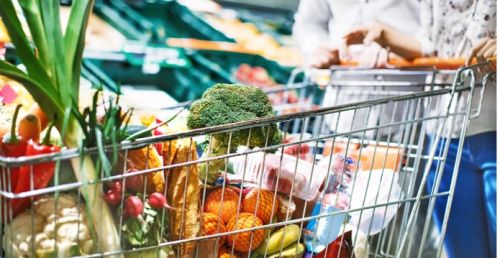
What precautions should I take when unpacking my shopping? Does food need to be cooked to destroy the virus? Can I eat fruits and vegetables raw after just washing them with water? ANSES examined the possibilities of the COVID-19 disease being transmitted via food, on the basis of the available scientific data. Here are our answers to the most frequently asked questions.
> Read our news update: Coronavirus: ANSES's recommendations on food, shopping and cleaning
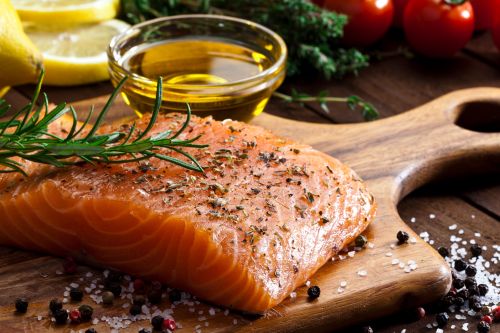
Vitamin D plays a key role in maintaining bone and muscle tissue and boosting our immune system. In the current COVID-19 epidemic, our immune defences might need to work particularly hard. We get our vitamin D intake from food sources such as oily fish, cheese and egg yolk.
> Read our news update: Ensuring sufficient vitamin D intake through diet during lockdown
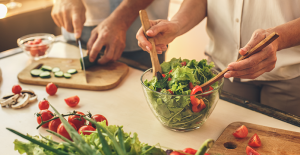
Each year, in France, around a third of reported foodborne infections occur in the home. During the current lockdown period, when all meals have to be taken at home, there may be some changes to how food is stored, prepared and consumed. It is therefore essential to pay greater attention to applying good hygiene practices in the kitchen.
> Read our news update: Good practices for preventing foodborne infections during the lockdown
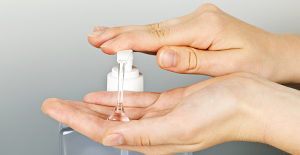
French poison control centres have reported numerous domestic accidents and poisoning cases related to COVID-19. ANSES provides an update on the situation, together with some recommendations on how to avoid the risks. In the context of the COVID-19 health crisis, ANSES and the network of French poison control centres are closely monitoring calls made to the centres for reasons related to COVID-19. The purpose is to identify specific risk situations in order to issue recommendations and alert the public authorities.
> Read our news update: COVID-19: beware of poisoning related to disinfection and other risk situations

Fewer trips outside, less physical activity and more inactivity, calorie and dietary imbalances... the lockdown recommended to combat the COVID-19 epidemic may pose specific risks to our health. ANSES issued an internal request with a view to making recommendations to mitigate the effects of these unusual circumstances on our musculoskeletal, cardiovascular and metabolic systems.
> Read our news update: Keep up physical activity and limit sedentary behaviour: ANSES adapts its guidelines to the lockdown situation
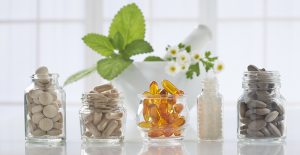
Some of the plants found in food supplements can weaken the body’s natural defences, primarily by interfering with the inflammatory defence mechanisms used to fight infection and, in particular, COVID-19. The plants concerned by the ANSES opinion include willow, meadowsweet, harpagophytum, turmeric, echinacea, birch, poplar and liquorice.
> Read our news update: ANSES warns against taking food supplements that could lower the body’s immune response
Preventing worker exposure
Despite the context of the COVID-19 epidemic, many occupations have to continue, as they are essential to keeping the country running. What specific measures should be taken to protect workers ?
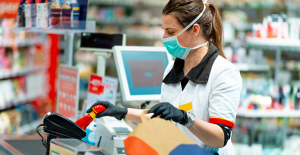
Despite the context of the COVID-19 epidemic, many occupations have to continue, as they are essential to keeping the country running.
Besides the indispensable healthcare activities, a number of jobs cannot be carried out by teleworking during the lockdown. ANSES has been examining exposure prevention with a view to giving employers recommendations on how to protect their employees.
> Read our news update: COVID-19: preventing exposure to the virus in the workplace
Limiting the presence of the virus in the environment
Can sewage sludge produced during the COVID-19 epidemic contain and spread the virus? Since the slurry spreading season is now beginning, ANSES received an urgent request to determine the potential risks associated with the agricultural use of sewage sludge produced during the COVID-19 outbreak.

At this stage, ANSES believes that the risk of SARS-CoV-2 contamination is low to negligible for sludge that has undergone disinfection treatment in accordance with the regulations. On the other hand, on the basis of the data currently available, it was unable to precisely define a level of contamination for untreated sludge, or to specify a storage period beyond which the virus is inactivated. The Agency therefore recommends that sewage sludge produced during the epidemic episode should not be spread without first being disinfected.
> Read our news update: Sewage sludge produced during the COVID-19 epidemic can only be applied to fields after disinfection
ANSES takes action against COVID-19
Faced with the unprecedented situation generated by the epidemic, the Agency has adapted its organisation to enable it to continue fulfilling its health missions. It is also working tirelessly to respond to the expert appraisal needs generated by COVID-19 and offering support to the overburdened healthcare system on multiple fronts. Find out more about all the work carried out by the Agency since March 2020.
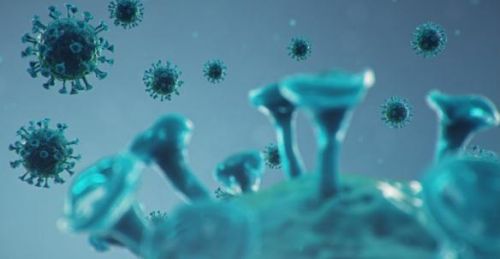
Following the lead of the Ministry of Health and the Regional Health Agencies, ANSES has offered the protective equipment and reagents it had available to hospitals near its 16 sites, to help equip healthcare workers and perform SARS-CoV2 diagnostic tests. ANSES's employees are also working to assist the coordination of research programmes on the disease, provide the Directorate General for Health with their expertise on diagnostic kits, and support hospitals.
> Read our news update: ANSES and coronavirus COVID-19